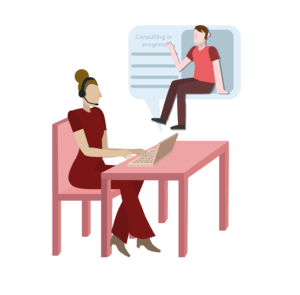
Dyslexia Support in the Workplace
We provide personal support services for those with dyslexia who are lacking confidence and need guidance.
What support is available for dyslexic people?
There are many local dyslexia associations that run workshops and are available for support. Fast-improving technology, such as electronic organisers and word processors, is enabling those with dyslexia to receive the necessary arrangements to be efficient and productive in their work environments. There are also a number of workshops that help you explore your dyslexia and figure out what your strengths and weaknesses are.
The British Dyslexia Association Helpline is a good source for speaking confidentially with a representative who will give you crucial support or advice. The number is 03334054567. If you are interested in finding a professional tutor in your area to aid with dyslexic learning, please visit https://www.bdadyslexia.org.uk/dyslexia/tutor-list.
If you're an employer looking to support your employees, check out our dyslexia consultancy service.


What are the different types of dyslexia?
The three main types of dyslexia are primary dyslexia, secondary dyslexia, and trauma dyslexia. Primary dyslexia means that this was genetically inherited, and therefore, it is likely that one of your parents would have had dyslexia as well. This type of dyslexia is found dramatically more in boys than in girls. Oftentimes, people with primary dyslexia confuse letters that look similar, like b/d. Secondary dyslexia forms during fetal development when there are issues involving the brain. This type is usually lifelong; however, it is possible to diminish over time with impactful treatment.
Trauma dyslexia is unlike the other two in that it occurs after some type of injury to the brain. This is one of the rarer forms of dyslexia because it has no predetermined factors, such as genetics. It is often referred to as acquired dyslexia. The injury would impact the part of the brain that controls the reading and writing functions. This would lead to difficulties in language processing.
What are the signs of dyslexia?
Signs of dyslexia in early childhood include delayed speech development, lack of pronunciation with long words, inability to remember what words to say in basic sentences, and no motivation to learn the alphabet. In addition, broader signs include avoiding certain tasks that revolve around tedious reading and writing. Nursery rhymes tend to be troublesome for young kids. On the other hand, there are many strengths of children with dyslexia. For example, they tend to be very imaginative and curious, as well as thinking outside the box and solving puzzles.
The risks from most cases of dyslexia can be seen from family history, premature birth, presence of nicotine, drugs, and alcohol during pregnancy, and slight malfunctions in the parts of the brain that allow reading.
In adults, difficulty summarizing and memorizing is common. Sequences may be hard to recall, such as remembering the order of a story or a pattern. Understanding expressions and jokes that are basic phrases can be challenging at times too. In the workplace, verbal instructions may be hard to remember and people often struggle if they are not able to see the tasks written down that need to be completed. If these are ignored and not treated, you may see signs of anxiety and low self-esteem. For more information, visit https://www.nhs.uk/conditions/dyslexia/symptoms/.

